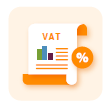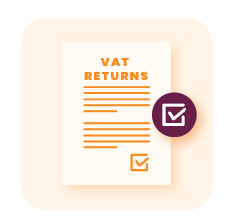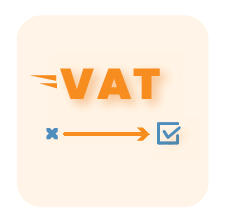Reverse Charge & “Call Off Stock” in Cyprus
Typically, the supplier of taxable goods or services is responsible for collecting VAT.
However, when a taxable entity in Cyprus acquires services from a provider located outside Cyprus, and the services are deemed to be supplied in Cyprus, the taxable entity must apply the reverse charge mechanism as outlined in Section 11 of the Cyprus VAT Act.
Read more about Reverse Charge and “Call-off stock” in Cyprus in our comprehensive guide below.
Selling in Cyprus?
Cyprus – “Call off stock”
Consignment stock involves goods shipped to a warehouse by a sender, known as a consignor, and later sold to an end customer by a middleman referred to as a consignee. The consignor remains the owner of the stock until it is about to be sold, at which point ownership typically transfers to the consignee. In this scenario, a supplier dispatches goods on demand to a storage facility, accessible to a specific customer who can retrieve them at will. This customer often owns or has control over the warehouse.
This arrangement is treated as either an import or an intra-Community acquisition of goods by the selling party, followed by a local sale to the customer. Consequently, the consignor or supplier is required to register for VAT in Cyprus for the sale of consignment stock.
For call-off stock transactions involving the movement of goods into Cyprus, registration is generally necessary. Yet, starting from January 1, 2020, a simplification measure allows suppliers from other EU Member States to bypass the need for VAT registration in Cyprus, provided certain conditions are met. Prior to this date, different simplification measures were in place.
Simplifications for Call-Off Stock on or after January 1, 2020 (“Quick Fix”)
As of January 1, 2020, the European Union introduced a standardization of call-off stock arrangements across its member states as part of the “Quick Fixes” in Article 17a of the EU VAT Directive. The Quick Fixes were incorporated into Cyprus law through the Value Added Tax (Movements of Goods for Inventory at the Disposal of a Specific Acquirer) Regulations of 2020.
Under these new rules, if a supplier transports stock to a warehouse in another EU Member State for future sale to a predetermined buyer, the movement is subject to specific conditions. The initial transfer of stock to the warehouse is not considered a taxable transaction under this simplification scheme. Instead, the taxable event occurs at the subsequent transfer of ownership to the buyer. This taxable event is treated as a zero-rated intra-Community supply of goods from the supplier to the buyer and as an intra-Community acquisition in the recipient’s Member State. As a result of this provision, suppliers no longer need to register for VAT in the destination Member State for these transactions.
Download the Cyprus VAT Guide
Cyprus – Import VAT
In Cyprus, exemptions or relief from the obligation to pay VAT on imports are available under several circumstances, including:
- Personal belongings of individuals relocating to Cyprus, which extends to wedding gifts for those moving to Cyprus and getting married.
- Educational materials for students or pupils moving to Cyprus for studies at educational institutions.
- Personal belongings inherited from another country.
- Capital assets associated with relocating a business from abroad to Cyprus.
- Certain medical supplies and goods intended for testing or examination purposes.
- Goods imported by charities.
- Samples imported for marketing or advertising objectives.
VAT-free importation of products from outside the EU into Cyprus is permissible if those goods would also be exempt from VAT in their destination country. Furthermore, goods imported and then dispatched or transferred to another EU Member State are exempt from VAT.
As of 1 July 2021, non-EU suppliers can utilize the Import One-Stop Shop Scheme (IOSS) for simplifying VAT payments on imports of low-value goods into Cyprus. Goods imported under the IOSS are taxed within this framework rather than undergoing standard import VAT procedures.
In Cyprus, all imported goods are subject to VAT, irrespective of the importer’s status as a taxable entity. Upon receipt, VAT is applied in a manner similar to import duty. However, importers can reclaim input tax if the imported goods are utilized in producing other taxable goods and services.
When importing goods from outside the EU, the importer, typically a business selling into Cyprus, must pay VAT on these goods along with any applicable customs and excise duties. If the importer is not VAT-registered, the goods’ recipient must cover the import VAT and any duties. If the imported goods contribute to the production of further taxable goods or services, the Cypriot recipient can meet standard input tax recovery conditions.
Last Updated: 02/04/2024
Disclaimer
The information provided by Global VAT Compliance B.V. on this webpage is intended for general informational purposes only. Global VAT Compliance B.V. is not responsible for the accuracy of the information on these pages, and cannot be held liable for claims or losses deriving from the use of this information. If you wish to receive VAT related information please contact our experts at support@gvc.tax








